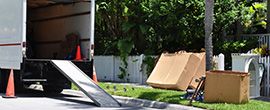The Real Cost Of Your Move To Bermondsey
Posted on 21/08/2014
So you have chosen the area of Bermondsey in London for your relocation? A house move is neither easy, nor cheap these days, but the real costs of the relocation might surprise you. Being financially prepared for the upcoming house move is an important stage of the whole moving organization. Some people might actually say that this is the first and most important rule of relocations – being fully prepared for the fees and the additional costs that tend to come up. Here is a list of these costs and expenses which you should take in consideration. They are the additional ones most people don’t initially think about when planning their moving budget.
1. Utilities: Starting up the utility services means paying an administrative fee for the new connection. Some of the companies could charge you a considerable fee for a set-up service, so make sure you include these fees into your budget plan.
2. Creating a home: Moving house is not just about the packing and actual shift of your entire household. The hardest part begins after the actual move. It’s when you have to turn an empty house or flat into a real home for you and your family. It’s essential to have some savings for that process, because you might end up replacing some old belongings, buying paint and doing repairs around the house. Of course it’s important to consider which items you will actually move from your old home. This will save you money, time and energy. If you don’t use an item regularly and it won’t look well in the new home you have a few options – replace it with a new one, trash it, sell it or donate it. Don’t hold on to the clutter just because you are used to it. Your new home will look much better without old and unwanted items that keep piling up with the years. If you are planning to buy new appliances or furniture pieces, make sure you order them with delivery straight to the new address, so you don’t end up having to pack and move them too. Often it isn’t until you move to the new place that you can actually assess your needs. One of the common problems is lighting – make sure you plan thee additional costs.
3. Travel costs: If you need to fly to the new location, you have to book your flights at a time when they are as low as possible, i.e. a few months in advance. If you are driving, plan the shortest and easiest route and buy snacks and drinks for the road so you don’t have to stop to eat in restaurants.
4. Food: After the house move your grocery bill will most probably be quite high. Go to the local stores and the markets and buy the absolute essentials so you can start cooking at home and save up on eating out.
5. Household items: Other necessities after the move include laundry soap, cleaning supplies and other simple items (waste bags, toilet paper, light bulbs, etc.), which tend to add up on the bill. Make a list of everything you need and go to a local home store where you can get everything with some discount.
Moving house these days is definitely not cheap, but being prepared for these extra costs can save you worries and stress and help you plan your budget well.
Latest Posts
The Smart Way to Move Your Bed and Mattress
The Benefits of Hiring Pros for Piano Relocation: Avoid Common Pitfalls
How to Ensure Your Home Is Perfectly Clean Before You Go






